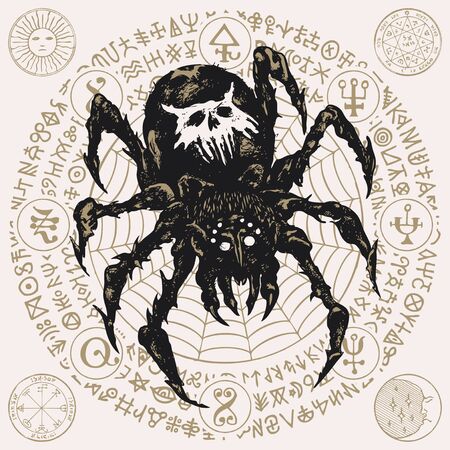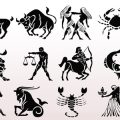Understanding Mangal Dosh in Vedic Astrology
Mangal Dosh, popularly known as Manglik Dosha, is a unique and significant concept in Vedic astrology that plays a vital role in the matrimonial decisions of many Indian families. Rooted deeply in traditional beliefs, this astrological condition arises when Mars (Mangal) is positioned in certain houses within an individual’s birth chart, or Kundli. In India, the influence of Mangal Dosh is often considered a crucial factor for marriage compatibility and long-term marital harmony. Many believe that the presence of Manglik Dosha can lead to challenges such as delays in marriage, misunderstandings, or even discord between couples. As a result, checking for Mangal Dosh during Kundli matching has become almost ritualistic, especially in Hindu communities. Understanding what constitutes Mangal Dosh and its perceived impact on relationships helps one appreciate why it holds such significance in Indian culture and why remedies are keenly sought after by those affected.
2. Spotting Manglik Dosha in Your Kundli
If you are wondering whether you or someone you know has Manglik Dosha, knowing how to spot it in your Kundli (birth chart) is the first step. In Vedic astrology, the placement of Mars (Mangal) plays a crucial role. When Mars occupies certain houses in the Kundli, it creates Manglik Dosha, which is believed to influence marriage and relationships.
Traditional Indian Astrological Methods
Indian astrologers look at the following houses in a birth chart to check for Manglik Dosha:
| House Number | Significance |
|---|---|
| 1st House (Lagna/Ascendant) | Self, personality, approach to life |
| 2nd House | Family, speech, early childhood |
| 4th House | Home, mother, domestic happiness |
| 7th House | Marriage, spouse, partnerships |
| 8th House | Lifespan, joint assets, transformation |
| 12th House | Expenses, foreign lands, isolation |
How to Identify Manglik Dosha in Your Kundli:
- Check the Position of Mars: If Mangal is placed in any of the above six houses in your Lagna Kundli (birth chart), Manglik Dosha is present.
- Use Both Lagna and Chandra Kundli: Traditionally, astrologers examine both the Ascendant (Lagna) and Moon sign charts for a comprehensive analysis.
- Partial vs. Full Manglik Dosha: If Mars occupies only some of these houses or forms specific aspects (drishti), it may be considered partial Mangal Dosh. A full Manglik Dosha occurs when Mars strongly influences these key houses.
- Cultural Note: In India, especially among Hindu families, checking for Mangal Dosh is a standard part of matchmaking or ‘kundli milan’ before marriage to ensure marital harmony—this is why many families consult an experienced Jyotish (astrologer).
A Quick Checklist for Identifying Manglik Dosha:
- Mars is present in 1st, 2nd, 4th, 7th, 8th or 12th house? (Yes/No)
- Have both Lagna and Chandra Kundlis been checked? (Yes/No)
- Are there any exceptions or cancellations (Mangal Dosh Parihar)? (Check with your astrologer)
If you tick ‘Yes’ for the first two points above, chances are high that you have Manglik Dosha! But don’t worry; understanding your unique planetary positions is just the beginning—remedies and solutions are available as per our ancient Vedic wisdom.
![]()
3. Common Misconceptions About Mangliks
When it comes to Mangal Dosh or being a Manglik, Indian society is full of myths, stereotypes, and unnecessary fears. Let’s bust some of the most popular misconceptions and get to the heart of what Vedic astrology really says.
Mangliks Are Not “Cursed”
A lot of people wrongly believe that Mangliks are somehow “cursed” or doomed to have troubled marriages. This is simply not true! In reality, Mangal Dosh is a planetary position in your Kundli (birth chart) — not a punishment from the universe. It just means Mars has a strong influence in certain houses, which can affect relationships, but it doesn’t mean disaster is guaranteed.
Manglik-Manglik Marriages Are Not the Only Solution
Another common myth is that only a Manglik can marry another Manglik. Yes, matching horoscopes can help balance energies, but modern astrologers and many Vedic texts suggest several remedies and compatibility checks. Sometimes, the dosha gets cancelled (Mangal Dosh Nivaran) due to other planetary placements, so don’t panic!
Delays Don’t Always Mean Manglik Dosh
If someone faces marriage delays or problems, relatives often blame Mangal Dosh. But there are dozens of factors affecting marriage timing — career focus, personal choices, family issues, or even simple coincidence. Mars is not always the culprit!
The Real Astrological Perspective
Vedic astrology views Mars as a planet of energy, courage, and passion. When placed strongly in your Kundli, it may bring challenges in marital life due to heightened emotions or impatience — but with proper understanding and remedies, these can be managed. Many successful couples include at least one Manglik partner; harmony is totally possible!
No Need for Superstition – Use Wisdom Instead
It’s time we move beyond old superstitions. Consulting a qualified astrologer can give clarity on whether Mangal Dosh actually affects you or if it’s just hype. Remember: with faith in both tradition and practical steps, you can create your own happy shaadi story — Manglik or not!
4. Mangal Dosh Effects on Marriage and Life
Mangal Dosh, also known as Manglik Dosha, has always been a hot topic in Indian families, especially when it comes to marriage proposals! But what are the real-life effects? Let’s take a closer look at how Mangal Dosh can impact marriage, relationships, and overall life situations, keeping our cultural context in mind.
How Mangal Dosh Impacts Indian Marriages
In India, marriage is not just about two people—it’s about two families coming together. Astrologers often check Kundli (birth charts) for Mangal Dosh before any wedding. The presence of this dosh can raise eyebrows and even delay or cancel engagements. Here’s why:
| Possible Impact | Typical Indian Context |
|---|---|
| Marriage Delays | Families may postpone the wedding till remedies are performed. |
| Relationship Challenges | May cause misunderstandings or lack of harmony between partners. |
| Separation or Divorce Fears | Some believe high Mangal Dosh increases chances of marital discord. |
| Family Pressures | Elders might insist on matching Kundlis to avoid future problems. |
| Health & Financial Issues | Mangliks are sometimes thought to face more struggles post-marriage. |
Mangal Dosh: Beyond Marriage—Effects on Life
Mangal Dosh isn’t limited to shaadi (marriage) alone! Many believe it can also influence:
- Career Growth: Mangliks might experience delays or obstacles in professional life.
- Emotional Stability: Some feel more irritable or stressed due to Mars’s fiery energy.
- Family Harmony: Tensions with parents or siblings can be attributed to this dosh.
- Financial Ups and Downs: Occasional monetary setbacks or unexpected expenses are often blamed on Mangal Dosh.
Reality Check: Is It All Doomed?
Don’t worry! Not everyone with Mangal Dosh faces these problems. Many Indian couples lead happy lives despite being Manglik. It’s important to remember that astrology gives us insight—not a final verdict. Remedies and positive intentions play a big role in overcoming challenges related to Mangal Dosh!
5. Traditional Vedic Remedies: From Pujas to Parihar
When it comes to overcoming the challenges of Mangal Dosh, Indian families turn to a variety of age-old Vedic remedies that have stood the test of time. These traditional solutions are deeply rooted in our culture and beliefs, offering hope and harmony for those affected by Manglik Dosha in their kundli. Let’s explore some of the most trusted parihar (remedies) that are widely followed across Bharat.
Manglik Puja: Bringing Divine Blessings
The first step many families take is performing a dedicated Manglik puja. This special ritual is usually conducted at a temple or at home under the guidance of a learned pandit. The puja seeks blessings from Lord Mangal (Mars) and helps reduce the malefic effects of Mars in one’s horoscope. Offerings like red flowers, jaggery, and red cloth are common, as they resonate with Mangal’s energy. The belief is that these rituals help appease Mars and bring positivity in marital life.
Kumbh Vivah: Symbolic Marriage for Harmony
Kumbh Vivah is another significant remedy, especially popular in North India. In this unique ritual, the person affected by Mangal Dosh marries a banana tree, peepal tree, or even an earthen pot before tying the knot with their actual partner. This symbolic marriage is believed to nullify the dosha and prevent any ill effects on the future spouse. It’s a beautiful blend of faith and tradition that brings peace to many hearts.
Reciting Hanuman Chalisa: Seeking Protection
Chanting Hanuman Chalisa regularly is widely recommended for Manglik individuals. Lord Hanuman is known as the protector from planetary afflictions and negative energies. By reciting this powerful hymn every Tuesday, devotees seek strength, courage, and relief from Mangal Dosh’s adverse impacts. Many families keep Tuesdays reserved for Hanuman worship, making it part of their weekly spiritual routine.
Other Popular Parihar: Small Steps, Big Relief
Besides these major remedies, there are other simple yet effective practices: donating red lentils or red clothes to the needy on Tuesdays, visiting Navagraha temples, fasting on specific days dedicated to Mars, and wearing gemstones like red coral after proper consultation with an astrologer. All these steps are meant to balance Mars’ influence and promote marital harmony.
Cultural Relevance in Everyday Life
Across Indian households—whether in bustling Mumbai or serene Kerala villages—these Vedic remedies are more than rituals; they’re woven into our lifestyle and family traditions. Following these parihar not only addresses astrological concerns but also strengthens familial bonds through shared faith and collective action.
6. Modern Indian Perspective: Balancing Tradition & Practical Solutions
In today’s fast-paced urban India, the approach towards Mangal Dosh and Manglik Dosha in Kundli has evolved significantly. While traditional Vedic astrology continues to hold a special place in many families, especially during marriage discussions, modern Indians are blending age-old beliefs with practical thinking. For example, young professionals in cities like Mumbai, Bengaluru, and Delhi often consult astrologers but also consider compatibility beyond just dosha matching. Many couples see Manglik Dosha as a guideline rather than a deal-breaker, focusing on mutual respect and understanding. Astrological remedies—like performing pujas, visiting temples such as Mangalnath or Kukke Subramanya, or wearing red coral—are still popular but are now often done for peace of mind rather than strict necessity. Urban Indian families are increasingly open to dialogue and compromise; some may choose auspicious dates or simple rituals instead of elaborate ceremonies. In arranged marriage setups, elders might check charts, but youngsters prioritize education, career stability, and personal connection. This easygoing balance allows people to honor their heritage while embracing modern values, making Manglik Dosha management a blend of tradition and contemporary life. Ultimately, the modern Indian perspective is about respecting astrological advice without letting it overshadow practical relationship dynamics or individual happiness.

